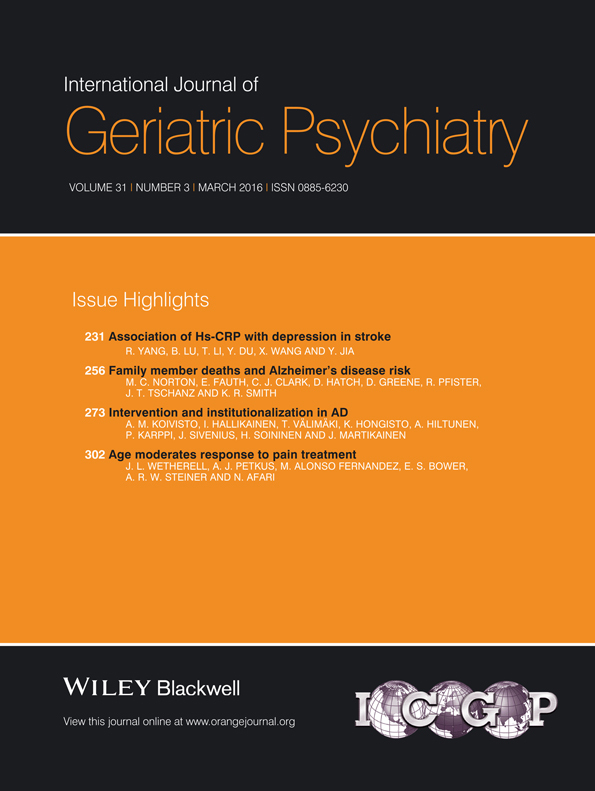Older people experiencing homelessness show marked impairment on tests of frontal lobe function
Abstract
Objective
Reported rates of mild and moderate cognitive impairment in older people experiencing homelessness range from 5–80%. The objective of this study was to determine the prevalence and characteristics of cognitive impairment in older people experiencing homelessness in the inner city of Sydney, Australia.
Method
Men and women experiencing homelessness aged 45 years and over in the inner city were screened for cognitive impairment. Participants who scored 26 or below on the mini-mental state examination and/or were impaired on any one of the clock-drawing test, the verbal fluency test and the trail-making test, part B were then assessed with a semi-structured interview, including the 21-item Depression Anxiety Stress Scale and the 12-item General Health Questionnaire.
Results
Screening of 144 men and 27 women aged between 45 years and 93 years identified cognitive impairment in 78%. Subsequently, high rates of mental and physical illness were identified, and 75% of subjects who were cognitively impaired performed poorly on frontal lobe tests. The trail-making test, part B was the most sensitive measure of frontal function.
Conclusions
This study demonstrated that a large majority of older people experiencing homelessness, in the inner city of a high-income country, showed impairment on tests of frontal lobe function, a finding that could have significant implications for any medical or psychosocial intervention. Copyright © 2015 John Wiley & Sons, Ltd.




